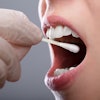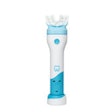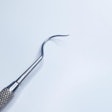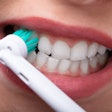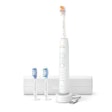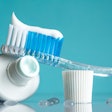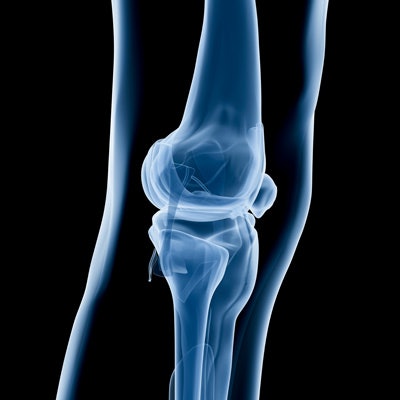
Frequent dental scaling reduces the risk of infection following knee replacement surgery, according to a new study published online in PLOS One (June 23, 2016). As oral bacteria are responsible for almost 15% of infections from these procedures, researchers from Taiwan recommend regular dental checkups and scaling.
Periprosthetic joint infection is the most common complication following total knee arthroplasty (TKA), according to the study authors, led by orthopedic surgeon Ta-Wei Tai, MD, of National Cheng Kung University College of Medicine. Oral bacteria enter the bloodstream through dental surgical procedures and other daily oral healthcare activities. These infections can lead to the need for additional debridement and further surgery, as well a higher mortality rate.
"The most important finding of this population-based, nested case-control study was that frequent dental checkups and tooth scaling may reduce the risk of total-knee arthroplasty infection," the researchers wrote.
Growing popularity of knee surgery
Total-knee arthroplasty is considered the best way to reduce knee pain and increase function in patients with osteoarthritis, rheumatoid arthritis, and other rheumatic diseases, according to the authors. The popularity of the procedure has increased with an aging population, as the number of knee replacement surgeries is projected to rise from 500,000 in the U.S. in 2005 to 3.5 million by 2030, according to a 2007 study in the Journal of Bone & Joint Surgery cited by the authors of the current study.
“The most important finding ... was that frequent dental checkups and tooth scaling may reduce the risk of total-knee arthroplasty infection.”
The new study analyzed 1,291 patients in Taiwan who were older than age 40 and had undergone TKA between 1999 and 2002. These patients needed resection arthroplasty because of periprosthetic infection within five years of their initial surgery.
Overall, the risk for TKA infection was 20% lower for patients who had dental scaling at least once within a three-year period than for patients who never received dental scaling. Notably, the risk of TKA infection dropped by 31% among patients who had more frequent dental scaling (five to six times within three years).
The patients in the infection group had less frequent dental scaling (p < 0.0004). In the three-year period before their surgery, almost three-quarters of the patients never had dental checkups or scaling.
The researchers found that the patients with periodontal disease had more bacteria in their blood after brushing their teeth than those with relatively healthy gums.
Prophylactic antibiotics?
Recommendations for preventing infections after knee replacement surgery have focused on prescribing prophylactic antibiotics before dental procedures. Yet, according to a 2015 study in the Journal of the American Dental Association, prophylactic antibiotics are not recommended before dental procedures to prevent TKA infection for patients with prosthetic joint implants.
However, the American Academy of Orthopaedic Surgeons differs, saying that prophylactic antibiotics are effective in reducing surgical site infections in hip and knee arthroplasty, according to a 2008 recommendation.
Frequent dental checkups and tooth scaling may reduce the risk of TKA infections, concluded the authors of the current study.
"The possible mechanism of risk reduction is that regular dental checkups and scaling can improve oral health and decrease the risk of transient bacteremia caused by oral flora," the authors wrote. "The results suggested that the more frequently patients underwent dental scaling, the lower their risk of infection."
